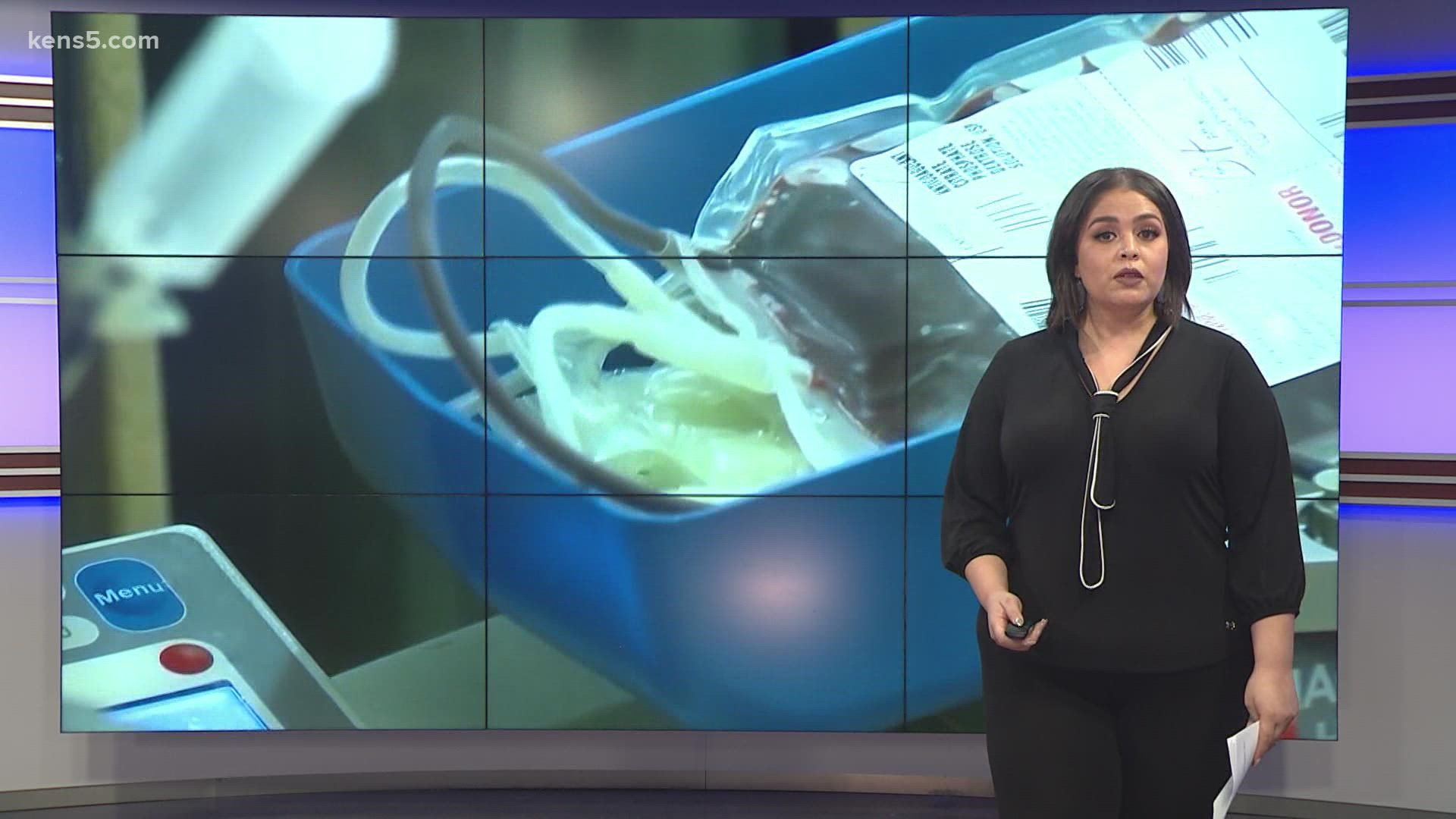SAN ANTONIO — A call to action on the east side of San Antonio Friday.
In the middle of a national blood shortage crisis, local advocates say a federal rule discriminates against the LGBTQ community.
The FDA rule in question requires gay or bisexual men to abstain from sex for a minimum of three months before they can donate blood.
Local leaders are concerned, saying the policy isn't just old fashioned - it's further marginalizing members of an already vulnerable population.
"There are people experiencing health complications and risks every single day who are being punished because of homophobia," said San Antonio District 2 City Councilman, Jalen McKee-Rodriguez.
At Friday's blood drive on the east side, San Antonio LGBTQ advocates implored the FDA to review an existing policy.
"We will not stand for this in the year 2022," said Camilla Factory, Executive Director of Black Freedom Factory. "I 100% back the efforts of Councilman Jalen's office to call out the discriminatory policy that gatekeep the rights of LGBTQIA+ citizens in the city of San Antonio and beyond."
McKee-Rodriguez says he was stunned when he recently learned he couldn't give blood on the spot. The reason why had nothing to do with his health.
"A homophobic and archaic regulation effectively forbidding me, and other gay and bisexual men, trans women, non-binary and queer people from donating blood," he explained. "Crisis does not discriminate and our response to end it should not discriminate either."
The FDA's recommendations for reducing HIV transmission by blood and blood products requires that male donors wait three months if they've been sexually active with another male.
It's a rule all U.S. blood collection centers must follow.
"Just the fact that straight people with multiple partners can give blood but monogamous gay men can't is unacceptable," said Melissa Ochoa, Board President of the San Antonio LGBT Chamber of Commerce. "An individual in a life or death situation and needs blood is not going to ask, 'Did this blood come from a man that had sex with another man or from a man that had sex with a woman?'"
"In 2015 the FDA ended the discriminatory lifetime ban of blood donations for men who have sex with men and instead imposed a 12-month deferral. In 2020, they reduced that deferral to three months," said Robert Salcido, Executive Director of Pride Center San Antonio. "While progress has been made, it is not enough."
Wednesday, Dr. Gerald E. Harmon, the President of the American Medical Association, called for an end to these restrictions.
"The ability for us to test for infectious diseases is much different than it was 30, 40 years ago," said Adrienne Mendoza, Chief Operating Officer of the South Texas Blood & Tissue Center. "Even advances in the last 10 years have made the detectability of infectious diseases so much better and we have a safer blood supply as a result."
These pleas on a nationwide basis are reaching the ear of the FDA. Change could be on the horizon.
The ADVANCE study is enrolling 2,000 gay and bisexual men across the nation who are willing to give blood. The goal is to figure out if a donor questionnaire based on individual risks will be just as effective as these deferrals in reducing the risk of HIV.
In a statement to KENS 5, a Spokesperson with the FDA told us, "We do not have a specific timeline for when these studies may be completed, but remain committed to gathering the scientific data that can support alternative donor deferral policies that maintain a high level of blood safety."
"We welcome all donors. We're supportive of changes with the FDA. We're supportive of science leading the way to that change, and change is overdue," said Mendoza. "It's time."

